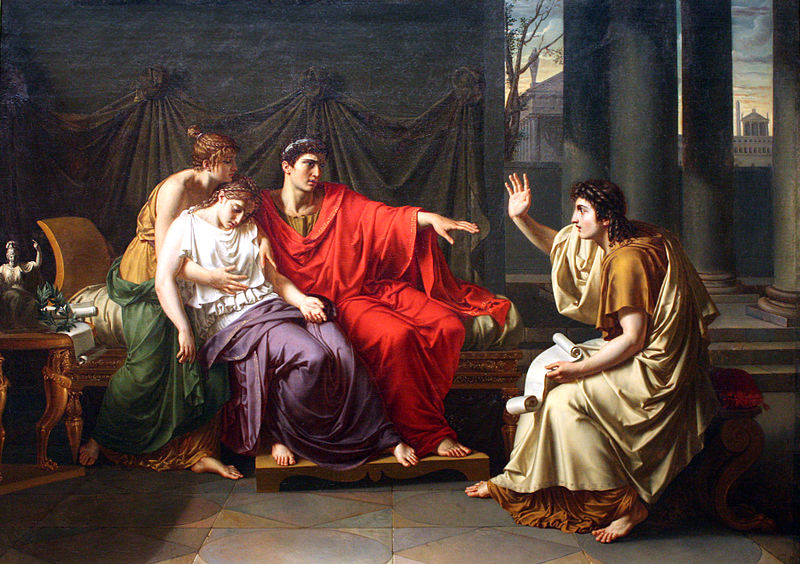* * * *

“Saints Peter and Paul,” by El Greco…
* * * *
June 29 is the Feast of Saints Peter and Paul. It honors “the martyrdom in Rome of the apostles Saint Peter and Saint Paul” (seen above). It’s an ancient celebration, and the date is “the anniversary either of their death or of the translation of their relics.”
There’s more on translating relics below, but first: On January 18 we celebrate the Confession of Peter: “Thou art the Christ, Son of the Living God.” A week later on January 25 we celebrate the Conversion of St. Paul. Then comes June 29, when we celebrate both men:
On 29 June we commemorate the martyrdoms of both apostles. The date is the anniversary of a day around 258, under the Valerian Persecution, when what were believed to be the remains of the two apostles were both moved temporarily to prevent them from falling into the hands of the persecutors.
See St. Peter & St. Paul. (A link from the Daily Office Lectionary, Satucket.com.)
So on June 29 we commemorate the fact that both men were martyred at about the same time, in Rome, and that the bodily remains of both men were “removed” at about the same time, to keep those bodily remains – “relics” – from being desecrated by unbelievers.
The Peter & Paul article noted that the Bible doesn’t mention the deaths of Peter or Paul, “or indeed any of the Apostles except for James the son of Zebedee.” (See Acts 12:2.) But early tradition said they were martyred at Rome at the command of an Emperor, and buried there:
As a Roman citizen, Paul would probably have been beheaded with a sword. It is said of Peter that he was crucified head downward [as shown below left. And thus as St. Augustine wrote,] “even though they suffered on different days, they were as one. Peter went first, and Paul followed. And so we celebrate this day made holy for us by the apostles’ blood…”
 Which brings us back to the “translation of relics.” (Here, “the remains of the two apostles … moved temporarily.”) The term relics came to include the body parts of people considered especially holy. The translation of those relics – again – meant moving those body parts from where they were originally buried. (To a new place, and usually for a “holy purpose.”) See also Why do we venerate relics: “Relics include the physical remains of a saint (or of a person who is considered holy but not yet officially canonized) as well as other objects which have been ‘sanctified’ by being touched,” by the saint in question.
Which brings us back to the “translation of relics.” (Here, “the remains of the two apostles … moved temporarily.”) The term relics came to include the body parts of people considered especially holy. The translation of those relics – again – meant moving those body parts from where they were originally buried. (To a new place, and usually for a “holy purpose.”) See also Why do we venerate relics: “Relics include the physical remains of a saint (or of a person who is considered holy but not yet officially canonized) as well as other objects which have been ‘sanctified’ by being touched,” by the saint in question.
Thus translating relics is the practice of moving “holy objects from one locality to another (usually a higher status location)… Translations could be accompanied by many acts, including all-night vigils and processions.” As Wikipedia also noted, in the really-early church the body parts of saints like Peter and Paul remained undisturbed, where they were originally buried.
Then came the persecutions under Roman emperors…
 But it wasn’t until the 8th century – the 700s – that such relics really began to be spread “all over Europe.” (The image at right shows “St. Corbinian’s relics being moved to Freising from Merano.”) One big reason was that after the year 787, all new Christian churches “had to possess a relic before they could be properly consecrated.” See Wikipedia:
But it wasn’t until the 8th century – the 700s – that such relics really began to be spread “all over Europe.” (The image at right shows “St. Corbinian’s relics being moved to Freising from Merano.”) One big reason was that after the year 787, all new Christian churches “had to possess a relic before they could be properly consecrated.” See Wikipedia:
New churches, situated in areas newly converted to Christianity, needed relics and this encouraged the translation of relics to far-off places. Relics became collectible items, and owning them became a symbol of prestige…
So as the Christian Church spread as an institution, more and more such “relics” had to be found. (Or more precisely, “unearthed.”) Unfortunately the need for such relics led to abuse.
The situation got so bad that Protestant church leaders came to totally reject this and other “Romish” practices. That skepticism vis-a-vis such relics continues “even to this day:”
Pope Gregory I [shown below] forbade the selling of relics and the disruption of tombs in the catacombs. Unfortunately, the popes or other religious authorities were powerless in trying to control the translation of relics or prevent forgeries [and] the abuses and the negative reaction surrounding relics has led many people to this day to be skeptical about relics.

(See Why venerate relics?) But we digress!
We were talking about June 29 as “the Feast of Saints Peter and Paul.” That article includes a link to and discussion of the Incident at Antioch, involving these two Founding Fathers of the Church. That dispute also continues “even to this day.”
The dispute ostensibly involved circumcision, as a prerequisite for admission to the new Christian church. But more precisely, the dispute involved whether all new non-Jewish converts – “Gentile Christians” – had to follow all the laws, rules and regulations of the Jewish faith in order to be a real Christian. (Or put another way, “legalism” versus “grace.”) And as was noted in the article, Incident at Antioch:
[T]he issue of Biblical law in Christianity remains disputed to this day. The Catholic Encyclopedia states: “St. Paul’s account of the incident leaves no doubt that St. Peter saw the justice of the rebuke…” In contrast, L. Michael White‘s From Jesus to Christianity states: “The blowup with Peter was a total failure of political bravado, and Paul soon left Antioch as persona non grata, never again to return.”
Wikipedia added, “The final outcome of the incident remains uncertain resulting in several Christian views of the Old Covenant to this day.”
Put simply: There’s an ongoing debate on how much of the Old Testament Christians have to follow. Some think only parts of the Old Testament apply to them. Others believe that none of the Old Testament rules apply to them. Then there are “dual-covenant theologians,” who think Old Testament rules are binding only on Jewish people. And then there are those who believe “all are still applicable to believers in Jesus and the New Covenant.”
Be that as it may, the other dispute at issue here is whether Peter and Paul remained at odds with each other. Tradition has it that “Peter and Paul taught together in Rome and founded Christianity in that city… ‘They taught together in like manner in Italy, and suffered martyrdom at the same time.'” Or as another blogger said, the Incident at Antioch was a case of Peter and Paul resolv[ing] a problem, although some critics act “as if Peter were cowardly before the onslaught of Judaisers and Paul was arrogant in tackling a senior Apostle!”
Then there’s the view of Garry Wills, who referred to the incident as “the Blowup at Antioch.”
Wills noted first that Paul wrote his version of events some 30 years before Luke described the Council at Jerusalem, in Acts 15. (And thus was presumably more reliable than Luke’s version). He then noted that Paul’s account of the Jerusalem Council – in Galatians 2 – “could not be more different. There, Paul is neither summoned by Jerusalem nor sent by Antioch. He goes there as a result of a vision urging him to go.” (81-82)
Then came Galatians 2 , verses 11-15, where “Paul Rebukes Peter at Antioch:”
When Cephas [Peter] came to Antioch, I opposed him to his face, because he stood self-condemned; for until certain people came from James, he used to eat with the Gentiles. But after they came, he drew back and kept himself separate for fear of the circumcision faction. And the other Jews joined him in this hypocrisy…
As noted below, Paul basically got mad at Peter for being two-faced about the Lord’s Supper. To Paul, the effect was to “dismember the mystical body of Christ.”
And there’s another aspect of the dispute: Whether you are “saved” by following a set of rules and regulations, or by faith in Jesus alone. See The Controversy Over Faith And Works Continues. While some Christians indicate that you are “saved” by following a set of rules, Paul clearly came down on the side of faith. See Galatians 2:16: “know that a person is not justified by the works of the law, but by faith in Jesus Christ.”
But getting back to Garry Wills… He wrote that Paul was furious with Peter because “the Lord’s Meal was the symbol of unity for all the Brothers, Jew or Gentile.” He added that many later Church Fathers were shocked at the idea that Peter and Paul would “squabble” like that, “unable to accept the fact that great men could differ.”
But for Paul the debate was serious: Peter’s “backpedaling on Jewish observance” was a denial that the “risen Christ in Antioch in all those baptized into His mystical body.” (Emphasis added.) To Paul, it was the equivalent of “dismembering the body of Christ.”
Wills went on to say that Paul wrote at great length on the matter in his Letter to the Galatians. He did so because the members of that later church were “acting as if the matter of food laws were not settled.” (Emphasis in original.) More to the point here, Wills said “Paul’s last reported dealings with Peter” were not at Antioch, but rather with a “handshake of peace:”
Peter continued to be an emissary in the Diaspora and ended with Paul in Rome, where they died together as victims of Nero’s mad reaction to the fire that destroyed the city. The treatment of them as ultimately partners … would thus be justified. The two great leaders ended up on the same side. (E.A.)
The point being this: Some Christians seem to think they have to be all “nicey-nicey,” all the &%#$ time, with each other and with non-Christians. But the Feast of Peter and Paul goes to show it’s okay to have differences of opinion, or even “squabble” from time to time.
(For that matter, it’s okay to argue with God too…)
* * * *

“Scholars Disputing (Peter and Paul)” – but they still worked together…
* * * *
The upper image is courtesy of Saints Peter and Paul by GRECO, El – Web Gallery of Art:
The two saints[,] the most influential leaders of the early Church[, are shown here] engaged in an animated discussion. The older, white-haired Peter … inclines his head thoughtfully to one side as he looks towards the text being expounded. In his left hand he holds his attribute, the key to the kingdom of Heaven. His right hand is cupped as if weighing up an idea. Paul presses his left hand down firmly on the open volume on the table, his right hand raised in a gesture of explanation as he looks directly at the viewer.
The article noted El Greco painted the two together several times “with remarkable consistency.” Peter always has white hair and a beard, while “Paul is always shown slightly balding, with dark hair and beard, wearing a red mantle…” See also Feast of Peter and Paul – Wikipedia, with caption: “Saint Peter and Saint Paul. Oil on canvas by El Greco. circa 16th-century. Hermitage Museum, Russia.”
Re: the definition of “saint.” As one website said, “the ‘saints’ are the body of Christ, Christians, the church. All Christians are considered saints. All Christian are saints – and at the same time are called to be saints.” (Citing 1st Corinthians 1:2.) See What are Christian saints according to the Bible?
The “Corbinian” image is courtesy of Translation (relic) – Wikipedia, with caption: “St. Corbinian’s relics being moved to Freising from Merano. From a panel in the crypt of Freising Cathedral.”
The article Why do we venerate relics added that they are “divided into two classes. First class or real relics include the physical body parts, clothing and instruments connected with a martyr’s imprisonment, torture and execution. Second class or representative relics are those which the faithful have touched to the physical body parts or grave of the saint.”
Re: relics becoming “collectibles.” See Wikipedia, which added: “According to one legend concerning Saint Paternian, the inhabitants of Fano [a city in northeastern Italy] competed with those of Cervia for possession of his relics. Cervia [some 60 miles up the coast] would be left with a finger, while Fano would possess the rest of the saint’s relics [aka body parts].
The Pope Gregory image is courtesy of Pope Gregory I – Wikipedia, the free encyclopedia. Note that he was the pope who originated Gregorian chant, “the central tradition of Western plainchant, a form of monophonic, unaccompanied sacred song of the western Roman Catholic Church. Gregorian chant developed mainly in western and central Europe during the 9th and 10th centuries…”
As to the skepticism surrounding the value of such relics (“then and now”), see Wikipedia:
With various barbarian invasions, the conquests of the Crusades, the lack of means for verifying all relics and less than reputable individuals who in their greed preyed on the ignorant and the superstitious, abuses did occur. St. Augustine denounced impostors who dressed as monks selling spurious relics of saints… [T]he abuses and the negative reaction surrounding relics has led many people to this day to be skeptical about relics.
Re: the emporer at the time of the death of Peter and Paul. There is some debate whether it was Nero or Valerian (emperor). See Wikipedia, the free encyclopedia.
The full quote from Galatians 2 , verses 11-15, where “Paul Rebukes Peter at Antioch:”
When Cephas [Peter] came to Antioch, I opposed him to his face, because he stood self-condemned; for until certain people came from James, he used to eat with the Gentiles. But after they came, he drew back and kept himself separate for fear of the circumcision faction. And the other Jews joined him in this hypocrisy … so that even Barnabas was led astray by their hypocrisy. But when I saw that they were not acting consistently with the truth of the gospel, I said to Cephas before them all, “If you, though a Jew, live like a Gentile and not like a Jew, how can you compel the Gentiles to live like Jews?”
The Garry Wills quotes are from his book, What Paul Meant. Specifically, from the 2007 Penguin Books edition, at pages 79-88, in Chapter 4, “Paul and Peter.”
Re: Faith and works. See also Sola fide – Wikipedia. Or just Google “faith works controversy.”
Re: early church fathers “shocked at the idea that Peter and Paul would ‘squabble.'” Wills noted that according to St. Jerome , the whole incident at Antioch was a “kind of didactic charade,” a way of “dramatizing the truth that external rites are unimportant.”
The Garry Wills image is courtesy of Garry Wills – Department of History – Northwestern University.
The lower image is courtesy of www.canvasreplicas.com/Rembrandt.htm. See also Two Scholars Disputing by REMBRANDT Harmenszoon van Rijn.
* * * *

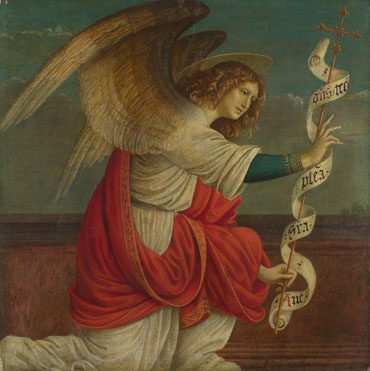 That is, nine months earlier – as Zechariah was doing his priestly duties in the
That is, nine months earlier – as Zechariah was doing his priestly duties in the 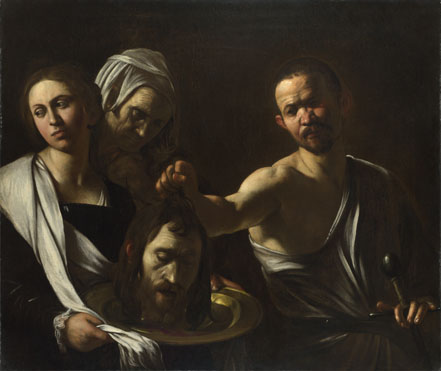
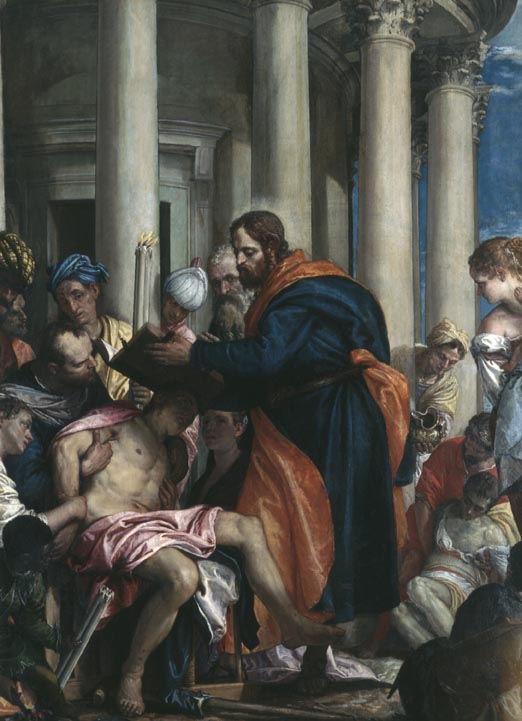


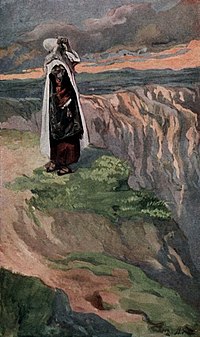 Deuteronomy 29:2-15 is part of “concluding discourse” of Moses, on renewing the covenant between God and the Hebrews. See
Deuteronomy 29:2-15 is part of “concluding discourse” of Moses, on renewing the covenant between God and the Hebrews. See  The Gospel – Luke 18:15-30 – began with people bringing children for Jesus to bless. The disciples tried to stop it, but:
The Gospel – Luke 18:15-30 – began with people bringing children for Jesus to bless. The disciples tried to stop it, but: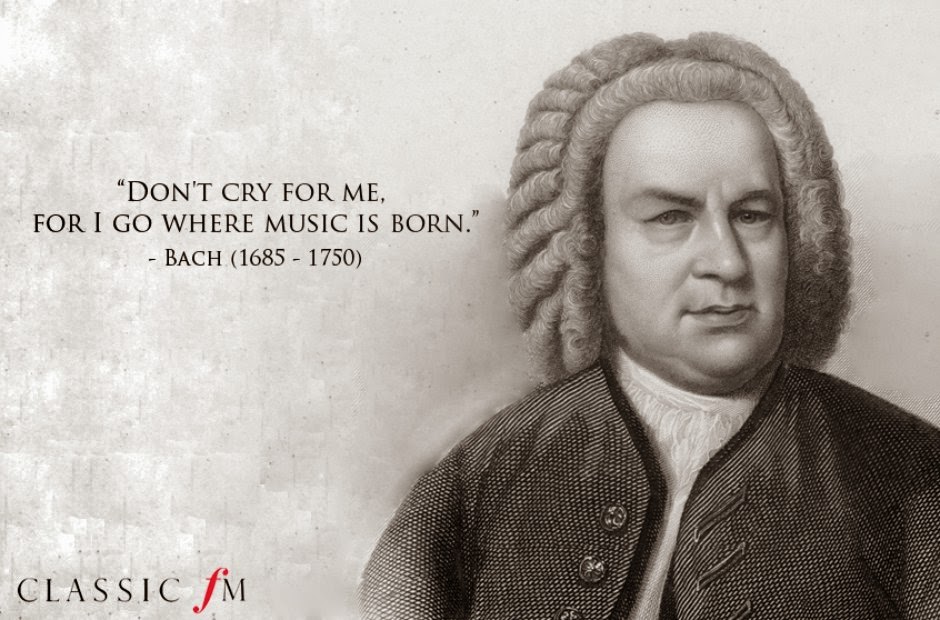 Personally I think it’s the “rote answer.”
Personally I think it’s the “rote answer.” In other words, this June 6th calls for us to remember the sacrifices of those brave members of the armed services 71 years ago, as part of the Allied invasion of Normandy.
In other words, this June 6th calls for us to remember the sacrifices of those brave members of the armed services 71 years ago, as part of the Allied invasion of Normandy.
 It took me awhile to find my copy and run down the passage. You can find it on page 182 of the Ballantine Trade Edition, published in 1996. It’s in Chapter 16, as part of Thompson’s account of the “Hoodlum Circus and The Statutory Rape of Bass Lake.” (An FYI: That section-title was an example of pure journalistic
It took me awhile to find my copy and run down the passage. You can find it on page 182 of the Ballantine Trade Edition, published in 1996. It’s in Chapter 16, as part of Thompson’s account of the “Hoodlum Circus and The Statutory Rape of Bass Lake.” (An FYI: That section-title was an example of pure journalistic  (See
(See 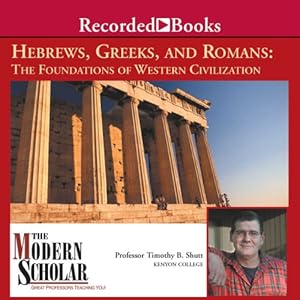 I was listening to Lecture 11 – on Virgil – in Shutt’s course-on-CD:
I was listening to Lecture 11 – on Virgil – in Shutt’s course-on-CD:  For one thing, you might want to realize that you are trying to deal with
For one thing, you might want to realize that you are trying to deal with 